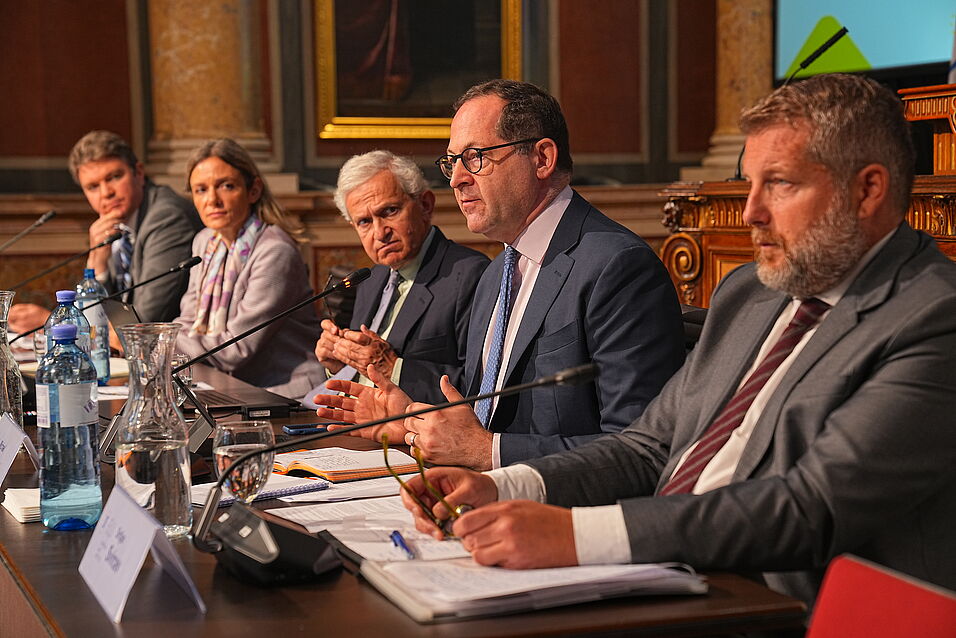The session examined how legal frameworks can enhance transparency, investor protection, and the integrity of Environmental, Social and Governance (ESG) principles, while supporting the global transition towards a sustainable economy.
Opening the discussion, Michael Strauss, General Counsel at the European Bank for Reconstruction and Development, reflected on the evolving challenges of procurement. While open procurement has long served anti-corruption and value-for-money goals, recent geopolitical and sustainability developments, particularly following Russia’s invasion of Ukraine, have made it increasingly difficult to reconcile openness with the Bank’s developmental and green investment objectives.
Building on this, Neale H Bergman, Senior Legal Officer at the United Nations, highlighted UNCITRAL’s contribution to sustainable finance through instruments such as the Model Law on Secured Transactions, the Legislative Guide on Access to Credit for MSMEs, and the Legislative Guide and Model Provisions on Public-Private Partnerships (PPPs). These frameworks, he explained, help expand access to credit, promote financial inclusion, and encourage sustainable investment in infrastructure, energy and transport.
Continuing the conversation, Margarita Pirovska, Director of Policy at the UN Principles for Responsible Investment (PRI), underlined the need for a coherent, whole-of-government approach to sustainable finance. She warned that fragmented or optional approaches to climate and human rights issues risk undermining transition efforts and increasing the costs of inaction, as highlighted by recent Network for Greening the Financial System (NGFS) analyses.

